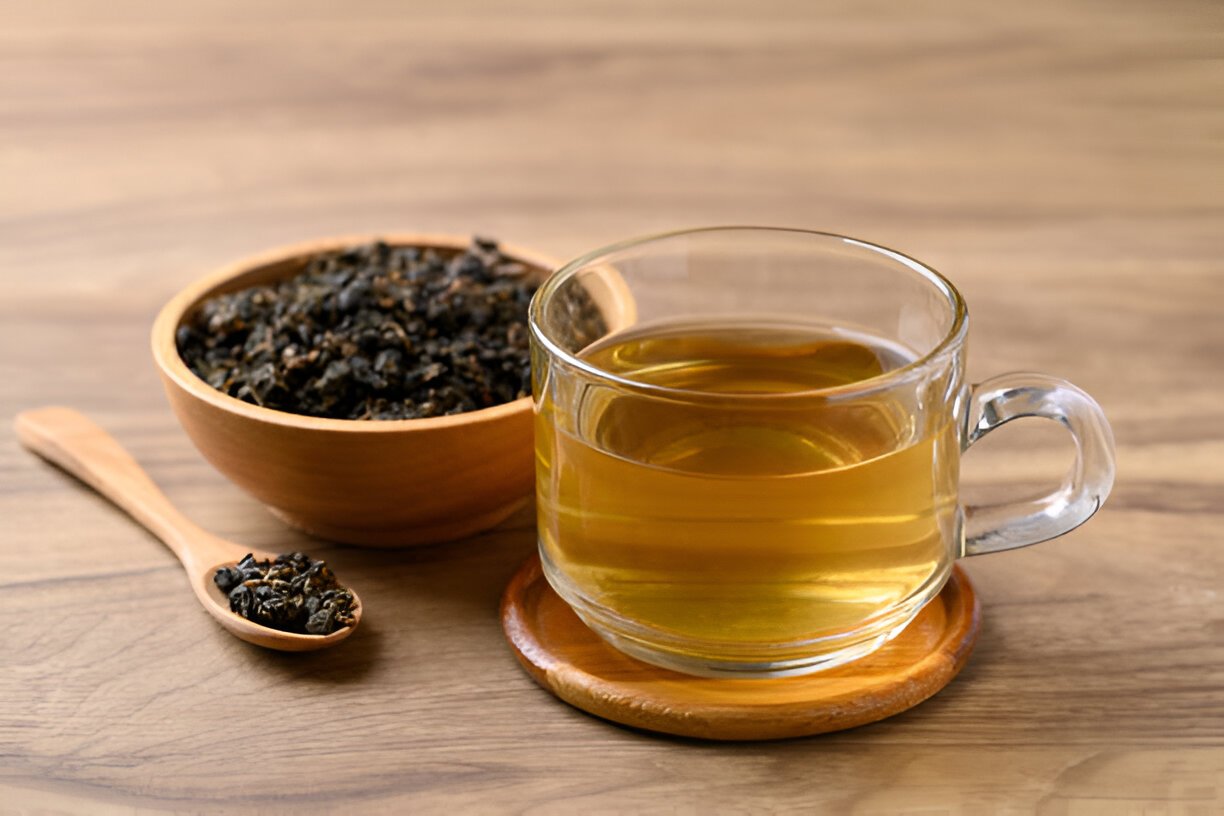Oolong tea, a traditional Chinese tea known for its distinct flavor and aroma, has been celebrated for centuries for its numerous health benefits. From weight management to heart health, this semi-oxidized tea offers a delightful combination of flavor and wellness. Let’s explore the nutritional values, key health benefits, precautions, and methods of incorporating oolong tea into your diet.
Summary Table
| Nutritional Values | Key Health Benefits | Diseases | Cautions | Incorporation |
|---|---|---|---|---|
| – Antioxidants, Caffeine, Theanine | – Weight Management | – Obesity | – Caffeine Sensitivity | – Brewing |
| – Heart Health | – Heart Disease | – Interactions with Medications | – Iced Tea | |
| – Mental Alertness | – Diabetes | – Staining Teeth | – Tea Blends | |
| – Digestive Health |
Nutritional Values:
Oolong tea is rich in antioxidants, vitamins, and minerals, making it a nutritious beverage choice. It contains polyphenols, catechins, caffeine, and theanine, which contribute to its health-promoting properties. While specific nutritional values may vary depending on factors such as brewing time and tea quality, oolong tea is generally low in calories and carbohydrates.
Key Health Benefits:
- Weight Management: Oolong tea has been studied for its potential to aid in weight management and promote fat loss. It may increase metabolism, enhance fat oxidation, and regulate blood sugar levels, helping to support healthy weight loss and maintenance.
- Heart Health: Regular consumption of oolong tea has been associated with improved heart health. Its antioxidant properties may help reduce the risk of cardiovascular diseases by lowering LDL (“bad”) cholesterol levels, improving blood flow, and promoting artery health.
- Mental Alertness: Oolong tea contains caffeine and theanine, compounds known for their effects on mental alertness and cognitive function. The combination of caffeine and theanine may promote focus, concentration, and overall cognitive performance.
- Digestive Health: Oolong tea may support digestive health by stimulating the production of digestive enzymes, improving gut motility, and relieving symptoms of bloating and indigestion.
- Skin Health: Antioxidants in oolong tea may help protect the skin from oxidative damage caused by free radicals, reducing the signs of aging and promoting a healthy complexion.
Curing Specific Diseases:
While oolong tea is not a cure for specific diseases, it may offer therapeutic benefits for various health conditions:
- Obesity: Oolong tea may aid in weight management and fat loss.
- Heart Disease: Regular consumption may reduce the risk of cardiovascular diseases.
- Diabetes: Oolong tea may help regulate blood sugar levels and improve insulin sensitivity.
Cautions:
Despite its potential benefits, oolong tea may not be suitable for everyone:
- Caffeine Sensitivity: Individuals sensitive to caffeine should consume oolong tea in moderation to avoid side effects such as insomnia, anxiety, or jitteriness.
- Interactions with Medications: Oolong tea may interact with certain medications, including blood thinners and stimulant medications. Consult with a healthcare professional if you are on medication.
- Staining Teeth: Like other teas, oolong tea may stain teeth over time. It’s essential to practice good oral hygiene and limit consumption to minimize staining.
Incorporating Oolong Tea Into Your Diet:
Incorporating oolong tea into your diet is simple and enjoyable:
- Brewing: Brew oolong tea leaves in hot water for 3-5 minutes to extract the flavor and nutrients. Experiment with different brewing times and temperatures to find your preferred taste.
- Iced Tea: Enjoy oolong tea as a refreshing iced beverage by brewing it and chilling it in the refrigerator. Add ice cubes and a slice of lemon for extra flavor.
- Tea Blends: Combine oolong tea with other ingredients such as herbs, spices, or fruit for unique flavor combinations and added health benefits.
Oolong tea offers a multitude of health benefits, ranging from weight management and heart health to mental alertness and digestive support. However, it’s essential to consume it mindfully, considering individual health conditions and potential cautions. By incorporating oolong tea into your daily routine in moderation, you can savor its delightful flavor and harness its wellness-promoting properties for enhanced well-being.





